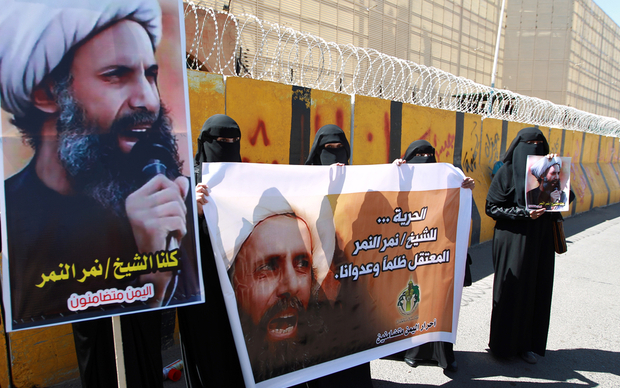On 2 January 2016, Middle East Eye published an op-ed by ADHRB advocacy associate Ellen Duthoy regarding Saudi Arabia’s portrayal of Sheikh Nimr as a terrorist. The first paragraphs of the article are found below; the rest can be viewed here.
Although Saudi Arabia has made headlines on Saturday after executing 47 people convicted of “terrorism”, much of the international coverage has recently focused on the kingdom’s foreign affairs.
Last month, Saudi Arabia captured the world’s attention with the announcement of an anti-terror coalition. The international community hurried to pick apart the details with a fine-toothed comb, and a legion of commentators offered their thoughts on Saudi’s role in the international playing field. But while analysis has been firmly focused at the international level, local drama has continued to quietly unfold inside the kingdom.
In late November, a media storm erupted when several Saudi newspapers leaked the impending execution of at least 50 “terrorists from al-Qaeda and Awamiyya”. The news drew the attention of numerous human rights organisations, which have repeatedly voiced concern over Saudi Arabia’s overly-inclusive definition of “terrorism”. The Specialised Criminal Court (SCC), established to handle terrorism cases in 2008, has tried and convicted a number of human rights defenders since its inception. Just this October, the SCC sentenced several founding members of a Saudi human rights organisation to 8-10 years in prison for what basically amount to thought crimes against the ruling family.





